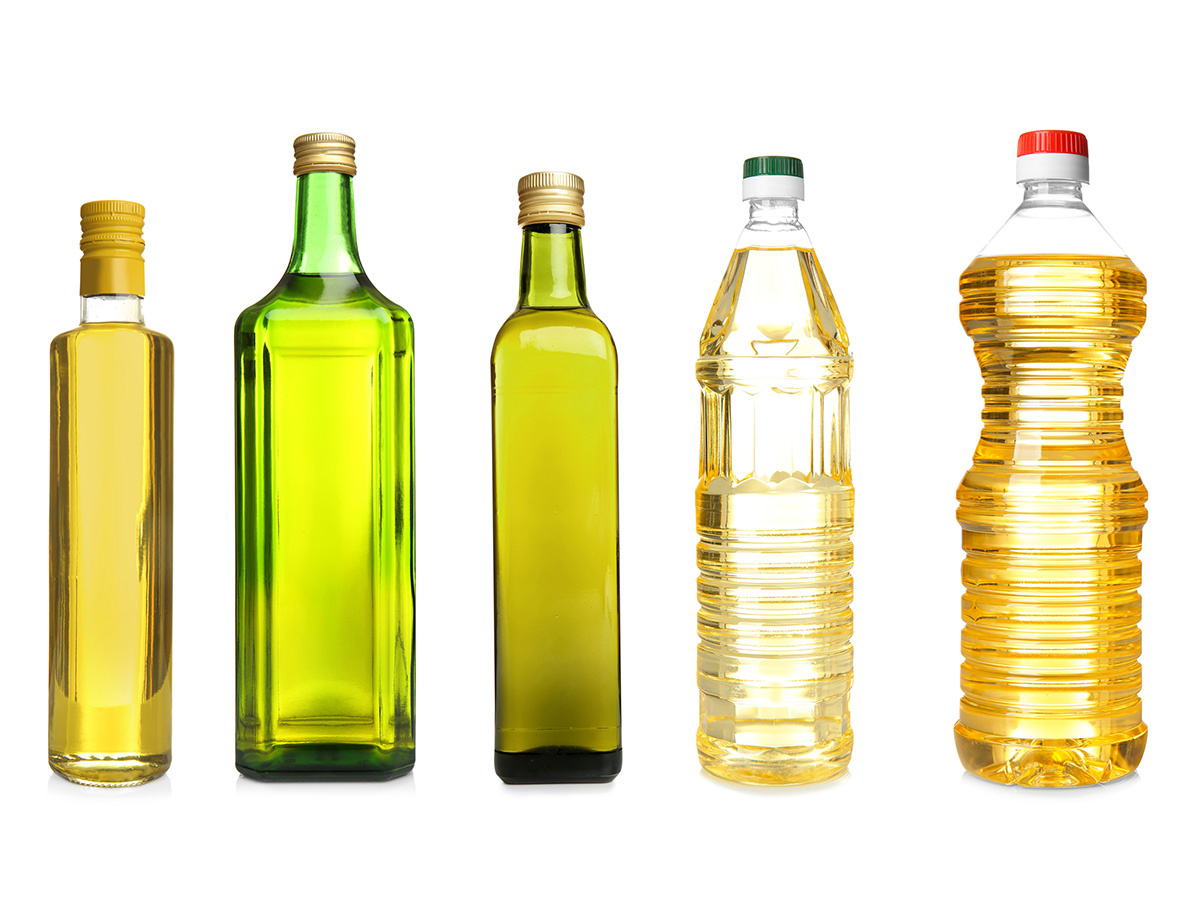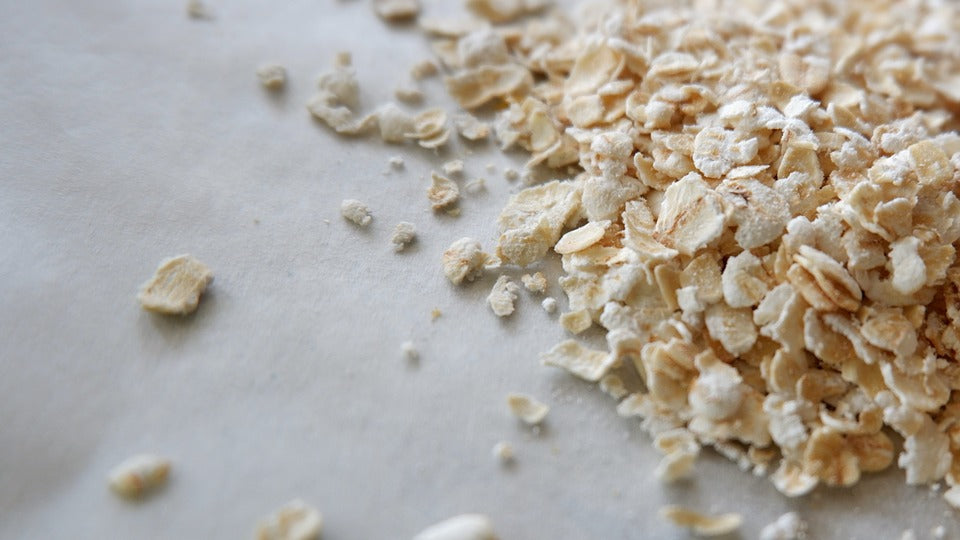Oils are the basis of many favorite recipes and play an important role in a variety of cooking techniques, from stewing and roasting to roasting and baking.
While many recipes tell you what type of oil to use, others don’t. And believe it or not, you can actually get better food by experimenting with something other than what is necessary.
Table of Contents
Types of Cooking Oils
Here is an overview of common edible health oils and best practices. Scroll below the picture for more information on the health benefits and proper storage.
Above all, don’t be afraid to experiment!
1. Extra Virgin Olive Oil
Perhaps the best known and most widely used edible oil, extra virgin olive oil or EVOO, has earned its reputation as a multi-talented healthy fat. It’s a great choice for cancer prevention because of its antioxidant, heart-healthy fat, and bond content.
Because of these advantages and their wide availability, you can use the EVOO for absolutely any type of cooking.
However, its low smoke point (the temperature at which it starts to rot and release harmful free radicals) means it’s not always the best way to deep-fry oil – at least not above 191 ° C.
Therefore, EVOO is often recommended for colder dishes such as dips, salads and sauces.
2. Light Olive Oil
Extra virginity may attract the most attention in the olive oil world, but its “lighter” cousin shares many of the same health-protecting properties.
The smoke point of light olive oil is much higher, around 243 ° C. It is therefore ideal for high-temperature cooking such as roasting, roasting and grilling.
Light olive oil can also be used for frying, but keep in mind that the taste can be overwhelming. And don’t be fooled by its name. This olive oil contains fewer calories than other types. “Light” refers more to a more neutral taste.
3. Coconut Oil
Like most other oils, coconut comes in two types: refined or unrefined (also called “virgin”).
Refined coconut oil has a melting point of 232 ° C. It is good for frying or deep-frying and has a neutral, light coconut taste.
Virgin coconut oil, on the other hand, offers a more distinctive coconut flavor and can be used at temperatures up to 350 ° F (177 ° C). Both are suitable for cooking in a 1: 1 ratio or with other oils.
Coconut oil has been the subject of much discussion about its health lately, so be sure to read our review of the evidence for its health benefits.
4. Rapeseed and Other Vegetable Oils
Researchers at the University of Manitoba developed canola oil as a staple food in the 1970s – hence the Canadian prefix “can”.
While other vegetable oils come from a mixture of vegetables (which, according to the label, can be kept secret), rapeseed oil is always made from rapeseed.
The refining process of rapeseed and other vegetable oils gives them a neutral taste and an average smoking temperature of 204 ° C. This makes them easy to mix, roast, roast, roast and bake.
Health information about canola and other vegetable oils can be conflicting, so read our guidelines for their pros and cons.
5. Avocado Oil
Since avocados are full of healthy monounsaturated fats, you won’t be surprised with their oil.
In addition to being high in these fine fats, avocado oil has the highest known smoke point for vegetable oil, refined at 271 ° C (520 ° F) and unrefined at 249 ° C (480 ° F). He is a rock star for roasting, distilling, roasting and grilling.
While avocado oil is considered a carrier oil that makes other flavors shine, choose a refined version if you prefer a mild, subtle flavor.
6. Peanut oil
There’s a reason peanut oil is so widely used in Thai, Chinese, and other Asian dishes. The refined variety with a smoking temperature of 232 ° C is ideal for mixing at high temperatures.
It’s also good for frying large quantities, which is why the food industry relies heavily on menu items such as french fries and fried chicken.
7. Sesame oil
Sesame oil can be the unknown hero your chefs need. High in monounsaturated fats and antioxidants, it rivals olive oil, which is a healthy choice for cooking.
The average smoke point of 350-400 F (177-204 ° C) means it can be used for mixing and frying, and as a condiment to add flavor.
These 5 clean meals clear blockages and protect your blood vessels
It is not worth thinking about heart health. Heart disease is the leading killer of women in the United States. Approximately 44 million American women suffer from cardiovascular disease, from which one woman dies every year. And one of the most common types of heart disease is coronary artery disease.
Coronary artery disease occurs when the buildup of plaque narrows the walls of the arteries and restricts adequate blood flow to the heart. Eventually, this can lead to a heart attack or death.
Lifestyle changes can treat or prevent coronary artery disease. An important effect in controlling or preventing disease is your diet.
Foods high in fiber, omega-3 fatty acids, healthy fats, and antioxidants all play a role in heart health. We’ve rounded up 10 cash-friendly foods and highlighted what makes them so good and how they can keep your arteries clean.
1. Lawyer
Can’t the lawyer do anything? As it turns out, avocado is good news for your blood vessels too. This heart healthy fruit will raise your “good” cholesterol and lower your “bad” cholesterol.
Avocados are also high in potassium – actually more than a banana. Potassium has been shown to help prevent cardiovascular diseases and the calcification of the blood vessels in the arteries.
Add it to your diet: replace the capital letters with avocado and use them in a sandwich, chicken salad, or tuna salad. Fan of smoothies? Get your daily dose of avocado by adding it to your favorite beverage (bonus: it’s a creamy treat!).
2. Big fish
While there is a myth that fat is bad for your arteries, knowing what type of fat you should be eating is important.
Like avocado, fish is loaded with healthy fats, also known as unsaturated fats. Eating fish is less associated with heart attacks. These omega-3 fatty acids have been shown to lower triglycerides and prevent the risk of cardiac death.
Add it to your diet: eat salmon or your favorite oily fish like tuna or mackerel one to four times a week to enjoy. When it comes to fish oil supplements or eating fish, the latter is considered to be the most beneficial for heart health.
3. Walnuts
Walnuts are a powerful force for heart health. Nuts high in unsaturated fats, vitamins, and fiber are great choices for a healthy snack. Try almonds, cashews, or Brazil nuts, all of which are high in magnesium. Magnesium prevents arteries and cholesterol from building up, and helps prevent arteries from becoming clogged.
Add it to Your Diet: For optimal heart health, the American Heart Association recommends a reliable source of three to five servings of nuts per week. Get your solution by learning how to go your own way.
4. Olive oil
Tired of Heard Healthy Fats? Of course not. They are delicious! But let’s end our healthy fat range here with perhaps the most versatile and popular: olive oil.
The monounsaturated oleic acid in olive oil (let’s say three times faster) protects your heart and reduces the risk of cardiovascular disease and stroke.
5. Coffee
Good news for coffee lovers. This popular choice will help keep your veins clean. One study found that drinking three cups a day significantly reduced the risk of atherosclerosis or clogged arteries.
If you don’t like coffee, green tea has also been shown to be good for your cardiovascular health.
Add it to your diet: drink three cups a day, you say? Thanks very much! However, it’s important to avoid sugar or lots of cream while getting your daily dose. Try to make your coffee as healthy and economical as possible.




